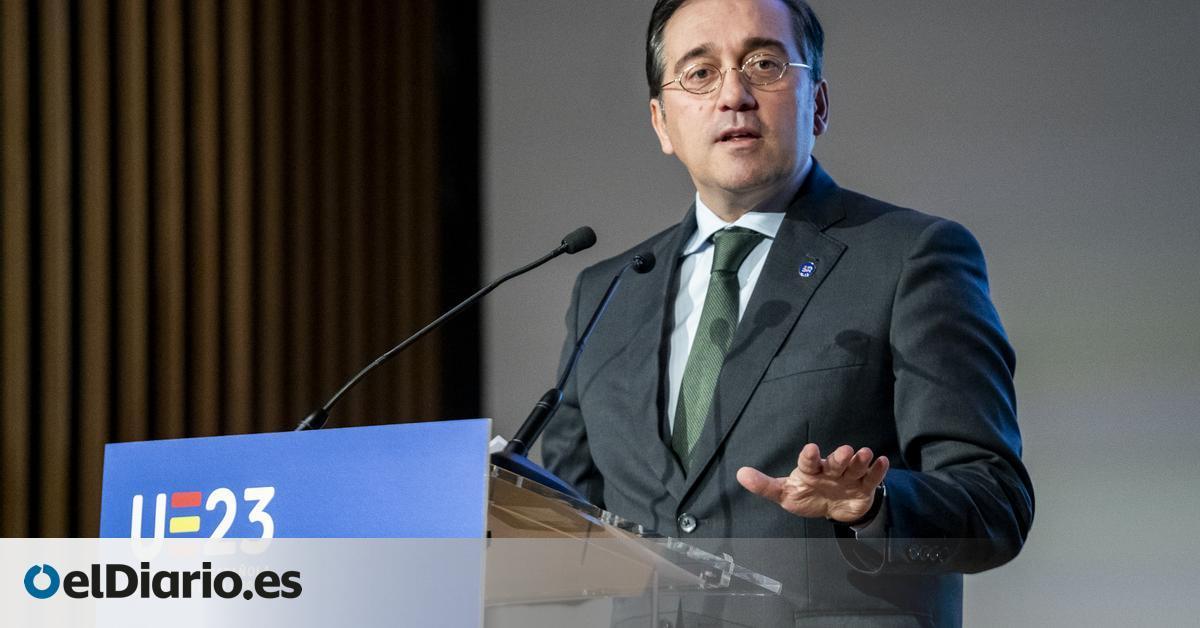
132 million a year. It is the cost that the European Commission estimates to make Catalan, Basque and Galician official in the EU. An expense – 44 million for each language, according to the European Commission report that El País has advanced and to which elDiario.es has had access – that Spain would assume, as the Government of Pedro Sánchez promised, in exchange for The 27 will accept the proposal, unprecedented given that in official institutions there are currently 24 official languages and all of them have a state character. But that was one of the commitments that the PSOE adopted with the pro-independence forces within the framework of the investiture negotiation and, taking advantage of its position as rotating presidency of the Council of the EU, it was brought to discussion with the rest of the governments in record time. . European partners, such as Sweden, Latvia, Lithuania and Finland, among others, expressed reservations and the decision was to commission a report from the European Commission on the legal and economic implications of this measure.
The Spanish presidency has once again included the debate on the modification of the regulation of the EU linguistic regime on the agenda of the General Affairs Council to be held next Tuesday. Some member states have privately expressed their surprise at the inclusion of this point again on the agenda given that this Thursday they had not even received the report that had been commissioned from the European Commission, so it is not expected for a decision to be made on the matter. The European Commission report is dated December 6.
The figure of 132 million euros comes from the financial estimate made by the European Commission for the inclusion of Gaelic in the official language regime in the EU in 2015. At that time, it estimated 37 million euros for one language, but the figure It increases to 44 million due to the indexation of 2% of current prices. However, the Brussels report makes it clear that this is a preliminary estimate and that, once the EU Council formally accepted the proposal, they would have to draw up a firm proposal, which would take about six months.
“The costs of adding an official language depend on the ease of recruiting staff for translation, interpretation, legal review and publications for EU institutions and bodies, including EU bodies and decentralized agencies legally obliged to implement the Regulation. No. 1/58, and the costs of organizing the opposition and selection procedures. Depending on the available reserve of qualified translators and interpreters, which may vary depending on the language, specific training will have to be determined and organized with the Spanish authorities,” states the text from the General Secretariat of the European Commission.
Beyond the economic reasons, which the Spanish Government quickly tried to appease by promising the rest of the countries that it would bear the costs, some European partners have reluctance towards the proposal in case it could open a spigot for other regional or minority languages. The Minister of Foreign Affairs, José Manuel Albares, tried to establish the ‘Spanish specificity’ by raising the official status of the languages under some premises such as the fact that they are spoken in the Spanish Parliament, that they are recognized in the Constitution and that they already have a semi-official regime in the EU.
In 2005, the Government of José Luis Rodríguez Zapatero reached an administrative agreement so that Catalan, Basque and Galician could be used in some situations. Thus, it foresees that there will be passive interpretation (that in which the interpreter understands the language and translates it into another language) in the ministerial meetings of the Council of the EU and in the plenary sessions of the Committee of the Regions if a request is previously made “with sufficient advance notice.”
For the moment, this agreement to use co-official languages in the institutions has meant only 60,000 euros for the central administration in seven years. In the case of the Council, the interpretations into the co-official languages have not resulted in any cost to the Spanish administration since they are “being carried out by the EU’s own interpretation services”, according to the Director General of Integration and Coordination of General EU Affairs, Salvador Rueda Rabanal, in a response channeled to elDiario.es through the Transparency Portal.
“The only direct cost, which gives rise to invoices that are covered by the budgets of the Spanish State, are the passive interpretations into co-official languages other than Spanish carried out in the plenary meetings of the Committee of the Regions,” the resolution states. Between 2016 and 2022, spending has amounted to 59,429 euros. Each year it ranges from 10,000 euros – the minimum, 8,964 euros, in 2019, and the maximum, 10,995 euros, in 2017 -, except for 2020 in which there was no cost due to the pandemic.
The signed agreement also allows citizens to address the rest of the institutions (European Commission, the Economic and Social Committee, the Ombudsman and the Court of Justice of the European Union) in Catalan, Basque and Galician and receive the response in the same language. “Such translations do not generate a direct cost for the central administration, since translation requests are sent to each of the designated organizations in the autonomous communities where there is a co-official language other than Spanish, and these organizations are in charge of carry out the translations with their own means,” the ministry states in its resolution.
The report also points to the need for a “gradual introduction period” for the implementation of these languages, which in the case of Gaelic was five years.
The Government said that it would prioritize the official status of Catalan over Basque and Galician. “We have proposed starting its deployment first with Catalan and then with the following languages,” Albares stated in a step that Junts applauded, but that upset the PNV.
Source: www.eldiario.es

